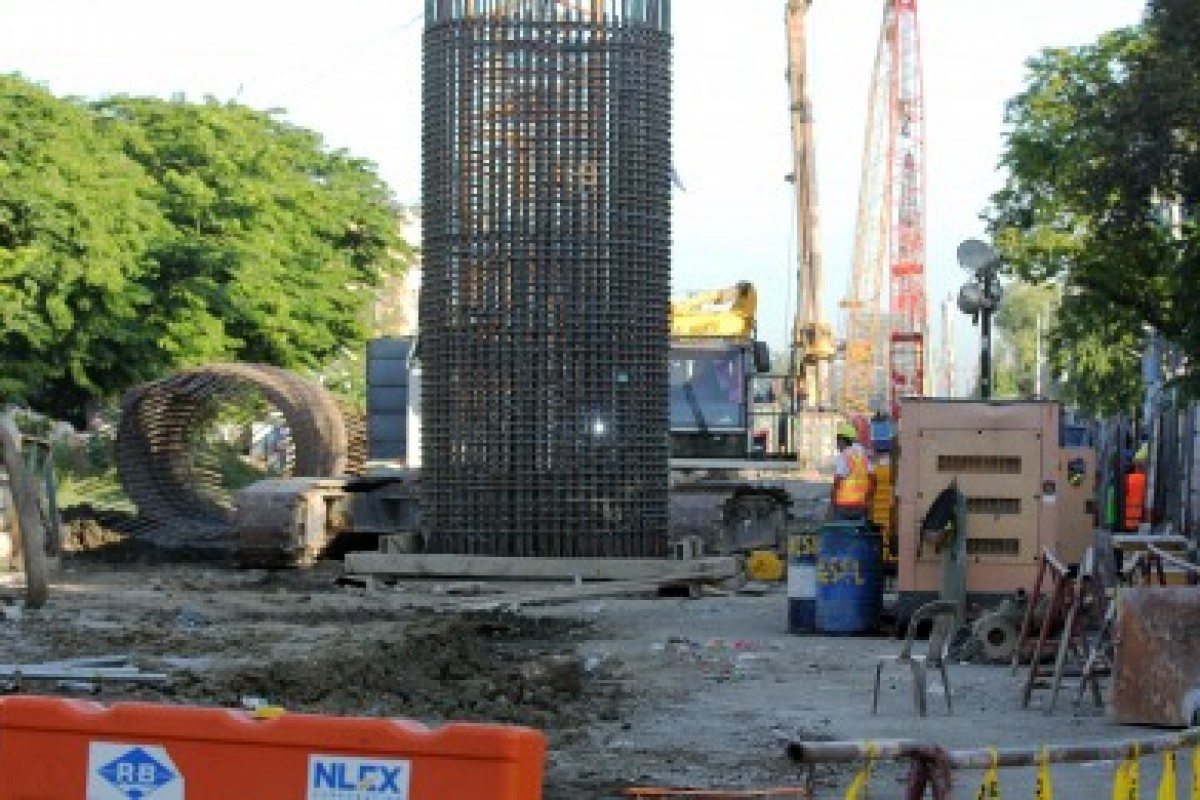
Fitch Ratings expects the incoming administration to continue the government's infrastructure program to boost the economy's growth. Unofficial vote counts showed former senator Ferdinand Marcos Jr. leading the presidential race. (PNA file photo)
MANILA, (PIA) -- Fitch Ratings eyes the continuation of the government’s infrastructure program, which is deemed as a key element of the economy’s favorable medium-term prospects, in the incoming administration.
In a report dated May 12, the debt rater said presidential candidate Ferdinand Marcos Jr. got a clear mandate based on the unofficial results of the May 9 polls and this is a plus if it wants to keep the policies of the current administration.
“Our baseline assumption is for the Philippines to continue with its sound policy framework and return to strong medium-term growth following the COVID-19 (coronavirus disease 2019) pandemic, but the Negative Outlook on the Philippines’ rating, which we affirmed in February 2022, reflects the uncertainty around this outcome, as well as possible challenges in bringing down government debt after the pandemic policy response,” it said.
The Philippines currently has an investment-grade rating of ‘BBB’ with a negative outlook from Fitch Ratings.
The credit rater said economic scarring caused by the virus-induced pandemic is expected to be countered by the investments aimed to address the infrastructure gap in the country.
“However, investment efficiency is critical. A deterioration of governance standards could, over time, dilute the positive effect of investment on productivity growth,” it added.
The report also said, “poorly managed public infrastructure investment could also contribute to government debt rising faster than nominal GDP (gross domestic product) over the medium term, which would pressure the sovereign rating.”
It said the impact of the High Court’s 2018 ruling regarding the increase of local government units’ (LGUs) share in national government funds starting this year is yet to be seen vis-à-vis the public spending efficiency.
“The current administration estimates the transfers will be fiscally neutral at the general government level, as it plans to transfer spending assignments in tandem to local government units. However, poor execution could lead to underspending by local governments,” it added.
The report cited that while this will have a big impact on the economy’s medium-term growth potential, “the net credit effects are likely to be negative, even though public finances may improve in the near term.”
In terms of Marcos’ campaign promise to suspend the rice tariffication law, the report said “this could curb rice imports and push up the cost of rice.”
“Amending the law could also hurt tax revenue. The low tax take is a credit weakness for the Philippines, and when we affirmed the rating in February, we noted that a reversal of tax reforms that leads to sustained higher fiscal deficits could result in a rating downgrade,” it said.
A better assessment of the incoming government’s policy agenda will be made once members of the new Cabinet, especially the economic team, have been finalized, it added.
“The incoming president’s capacity to implement legislation will also hinge on dynamics within the new Congress. Results of the congressional elections have yet to be confirmed, but we anticipate that the body will not pose a major obstacle to the eventual passage of the president’s legislative agenda,” the report said.
It continues to expect external buffers to be the economy’s credit strength “despite a modest weakening of the peso and rising pressure on the goods trade balance in recent months amid higher global energy prices.”
“A gradual reopening of the economy to tourists in the wake of the pandemic should support the country’s external position this year and official reserve assets stood at a comfortable USD107 billion at end-April 2022, only slightly down from USD109 billion at end-2021,” it added. (PIA-NCR)



